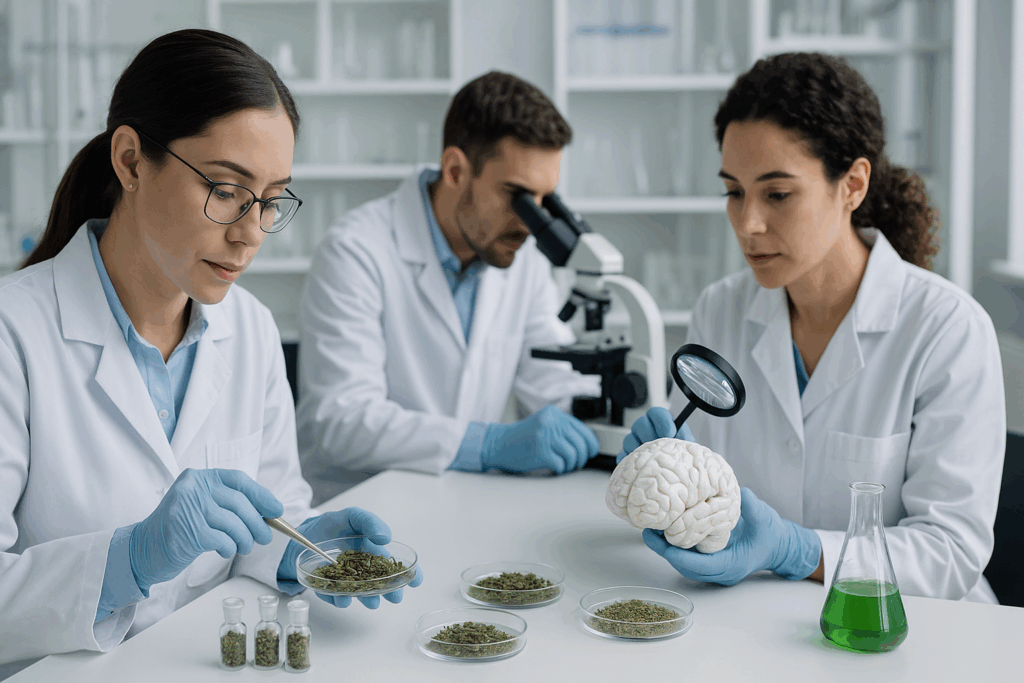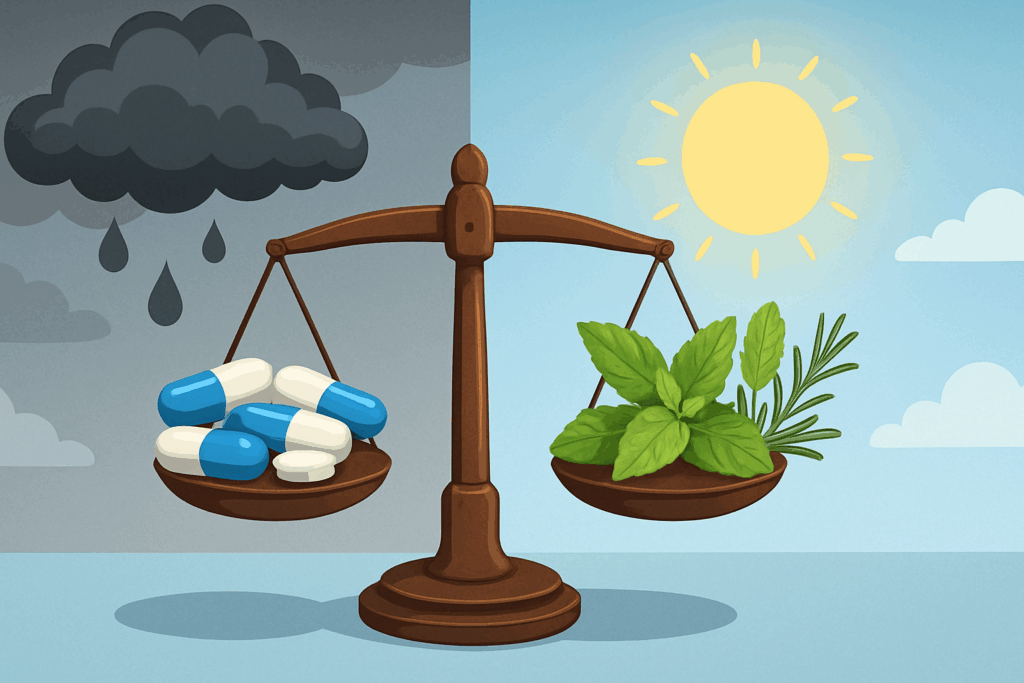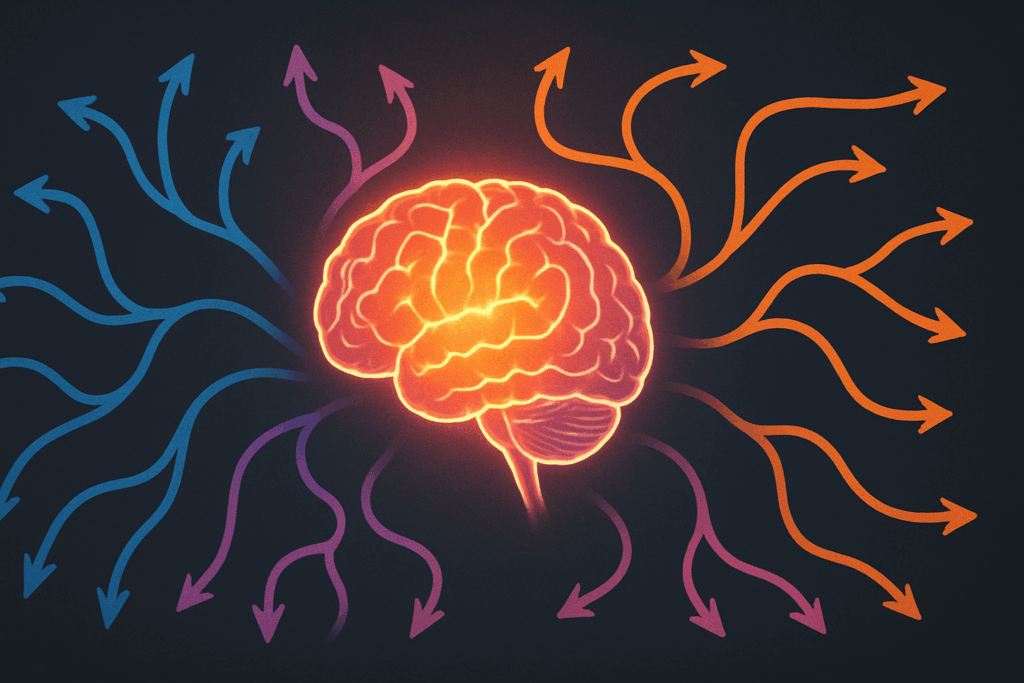Understanding the growing demand for cognitive enhancers, both prescription-based and natural, has become critical in today’s hypercompetitive academic and professional environments. Among the most discussed comparisons in this landscape is Vyvamind vs Adderall, a debate that sheds light on how synthetic stimulant medications differ from natural nootropics. While both Vyvamind and Adderall are marketed for their capacity to enhance focus and mental performance, they diverge significantly in terms of ingredient profile, mechanism of action, risk factors, and overall impact on cognitive health. NooCube enters this conversation as a well-known natural alternative, offering yet another lens through which to examine the benefits and trade-offs of synthetic versus natural compounds. This article unpacks the core differences between these products, with a special focus on their ingredients, scientific backing, and long-term effects.
You may also like: Nux Vomica: Potential Nootropic Benefits, Dosage, Side Effects, Interactions, and Other Important Information About This Supplement

Long-Term Cognitive Health: Sustainability Matters
Sustained cognitive performance hinges on more than momentary boosts in attention and energy. It requires nurturing the brain’s natural processes over time, a goal that synthetic stimulants often struggle to meet. With prolonged use, Adderall has been associated with neurochemical imbalances, increased tolerance, and withdrawal symptoms, particularly among individuals without clinical diagnoses. Long-term reliance on amphetamines can suppress the brain’s ability to produce dopamine naturally, leading to diminished mood stability and focus when the medication is absent.
In contrast, Vyvamind and NooCube are crafted with longevity in mind. By incorporating neuroprotective ingredients and adaptogens, these supplements aim to preserve brain health as much as they enhance it. Ingredients like Citicoline and Bacopa Monnieri have been studied for their capacity to support neurogenesis and prevent cognitive decline. These natural agents bolster the structural and functional integrity of neurons, making them ideal for users who prioritize not just performance but also resilience.
This long-term orientation is particularly important in educational and occupational settings where sustained mental clarity is required. Professionals in demanding industries and students pursuing advanced degrees benefit from nootropics that encourage balance rather than intensity. The use of NooCube vs Adderall in such contexts exemplifies the growing preference for well-rounded cognitive support that doesn’t compromise neurological well-being. Ultimately, sustainability in brain enhancement translates to more consistent productivity, emotional regulation, and overall quality of life.

Clinical Research and Scientific Validation
One of the pillars of trust in any cognitive supplement lies in the extent to which its claims are supported by scientific evidence. Adderall’s efficacy is well established in peer-reviewed studies for treating ADHD, with clearly defined mechanisms and dosage guidelines. However, these studies also highlight the risks of overuse and the fine line between therapeutic and harmful doses. Its classification as a controlled substance is a testament to its potency and potential for misuse.
Vyvamind and NooCube are increasingly the subject of academic inquiry, reflecting a shift toward validating natural nootropics with scientific rigor. For example, Citicoline, a core ingredient in Vyvamind, has been studied extensively for its role in increasing phospholipid synthesis and enhancing cognitive function in both healthy individuals and those with neurological impairments. Research published in journals such as “Clinical Interventions in Aging” underscores its neuroprotective benefits.
Similarly, Bacopa Monnieri and Huperzine A, featured in NooCube, have demonstrated statistically significant improvements in memory recall and cognitive flexibility in double-blind, placebo-controlled trials. These findings help demystify the concept of natural cognitive enhancement by showing measurable outcomes. While more research is needed to fully establish optimal dosing and long-term effects, the trajectory of current evidence supports the integration of these compounds into mainstream cognitive wellness protocols.

Understanding Side Effect Profiles: Risk vs Reward
An essential factor in choosing a cognitive enhancer lies in evaluating the potential for adverse effects. Adderall, due to its stimulant nature, carries a high incidence of side effects, especially when used outside of prescription parameters. These include cardiovascular risks, sleep disruption, heightened anxiety, and potential addiction. In adolescents and young adults, misuse of Adderall has been linked to episodes of aggression, paranoia, and severe mood instability.
Vyvamind and NooCube, being rooted in natural ingredients, exhibit milder side effect profiles. While individual sensitivities may vary—particularly regarding caffeine in Vyvamind or Huperzine A in NooCube—the overall risk of harmful effects is significantly lower. Most users report improvements in mental clarity and mood without the jitteriness or emotional swings associated with stimulant use. This makes these nootropics particularly appealing for those with a history of sensitivity to prescription medications.
It is worth noting that the effectiveness of these natural alternatives is enhanced when paired with healthy lifestyle practices such as adequate sleep, hydration, and a balanced diet. These factors amplify the bioavailability and impact of the ingredients. Understanding this interplay is crucial in managing expectations and achieving optimal results with minimal downsides. The decision between Vyvamind vs Adderall, or NooCube vs Adderall, should therefore be informed not just by desired outcomes but also by individual risk tolerance.

Real-World Applications and Case Scenarios
For those unsure which route to take, real-world usage scenarios can illuminate the practical benefits of natural nootropics. Take the example of a graduate student preparing for comprehensive exams over several weeks. The use of Adderall might provide short-term concentration boosts, but could also lead to irritability, insomnia, and diminished returns with repeated use. Alternatively, Vyvamind may offer sustained mental energy throughout the day without compromising sleep or emotional balance, aligning more closely with the demands of extended academic performance.
In a corporate setting, a marketing executive juggling multiple projects might seek enhanced creativity and stress resilience. NooCube’s inclusion of L-Theanine and Cat’s Claw addresses both cognitive flexibility and stress modulation. Over time, this could foster not only better task execution but also improved workplace morale and productivity. These scenarios highlight that natural nootropics are not only effective in lab conditions but also deliver meaningful advantages in everyday life.
Furthermore, many users have adopted a hybrid approach—reserving stimulants for acute needs while relying on natural enhancers like Vyvamind or NooCube for daily maintenance. This strategy allows for cognitive peaks without exhausting the body’s neurochemical resources. Such nuanced usage models speak to a maturing understanding of brain health, where personalization and adaptability are key.

Frequently Asked Questions (FAQ) About Vyvamind, Adderall, and NooCube
How Does Lifestyle Influence the Effectiveness of Vyvamind vs Adderall?
Lifestyle plays a crucial role in determining how well either Vyvamind or Adderall performs. While Adderall may provide quick stimulation regardless of external factors, Vyvamind’s benefits are more pronounced when paired with healthy sleep, nutrition, and stress management habits. Proper hydration, regular exercise, and mindfulness practices can enhance the natural cognitive support offered by Vyvamind. In contrast, an unhealthy lifestyle can exacerbate Adderall’s side effects, such as mood swings and cardiovascular stress. Therefore, individuals seeking sustainable mental performance often find that Vyvamind integrates better into a holistic wellness strategy.
Can Vyvamind vs Adderall Support Creative Thinking as Well as Focus?
When comparing Vyvamind vs Adderall, it’s essential to understand that each affects creative cognition differently. Adderall’s sharp stimulation tends to enhance focus on singular tasks but can sometimes suppress divergent thinking, a key element of creativity. Vyvamind, with its combination of L-Theanine and Citicoline, fosters a calmer mental state that supports creative problem-solving and idea generation. This makes Vyvamind particularly valuable for writers, artists, and innovators who need both focus and flexibility. Choosing between the two depends largely on whether the task demands rigid focus or adaptive thinking.
What Are the Emerging Trends in Nootropic Research Beyond Vyvamind vs Adderall?
Current research trends indicate a growing interest in adaptogenic nootropics that go beyond basic stimulation. Scientists are investigating compounds that support brain-derived neurotrophic factor (BDNF) and mitochondrial health for long-term cognitive resilience. While Vyvamind already includes ingredients that hint at these benefits, future formulations may incorporate advanced herbal extracts like Rhodiola Rosea or Lion’s Mane mushroom. Meanwhile, Adderall remains largely static in its pharmaceutical design, primarily because of regulatory constraints. This innovation gap further shifts attention toward sophisticated natural alternatives that align with evolving scientific understanding.
Is It Possible to Cycle Between NooCube vs Adderall for Different Needs?
Absolutely. Many users experiment with cycling between NooCube vs Adderall based on workload intensity and recovery needs. For instance, someone might reserve Adderall for high-stakes deadlines requiring extreme focus while relying on NooCube during regular work periods to maintain cognitive flexibility and protect neurological health. This strategy helps balance the brain’s neurotransmitter demands while minimizing stimulant burnout. Successful cycling requires careful planning and regular self-assessment to avoid tolerance issues or dependence. As research into personalized nootropic regimens continues, such hybrid strategies are becoming more mainstream.
How Do Emotional Health Outcomes Differ Between NooCube vs Adderall?
The impact on emotional well-being is a major differentiator between NooCube vs Adderall. Adderall’s influence on norepinephrine and dopamine can create emotional volatility, leading to irritability, anxiety, or mood crashes after the stimulant wears off. In contrast, NooCube’s ingredients like Bacopa Monnieri and Oat Straw are known for their mood-stabilizing properties. They promote resilience against stress and help smooth emotional fluctuations over time. For individuals prioritizing emotional stability alongside cognitive performance, NooCube presents a much gentler, nurturing alternative to high-powered stimulants.
How Do Vyvamind vs Adderall Compare in Supporting Brain Health During Aging?
As people age, maintaining cognitive function becomes increasingly important, making the choice between Vyvamind vs Adderall even more critical. Vyvamind’s inclusion of neuroprotective compounds like Citicoline and B-vitamins supports membrane integrity and neurotransmitter balance over the long term. Adderall, by contrast, offers no protective effects against age-related cognitive decline and may even exacerbate issues like hypertension and anxiety if used chronically. Therefore, for older adults focused on cognitive longevity, Vyvamind offers a safer, more strategic approach that aligns with healthy aging goals.
What Social Implications Are Associated with Widespread Adderall vs NooCube Use?
Socially, the widespread use of Adderall has fueled concerns about fairness, dependency, and medicalization of productivity, especially in academic and corporate settings. As awareness grows, NooCube offers a socially responsible alternative that avoids the ethical dilemmas tied to prescription stimulant misuse. Communities and institutions encouraging wellness initiatives increasingly view natural nootropics as viable tools for cognitive enhancement without fostering addiction. The shift from synthetic to natural solutions may contribute to healthier workplace cultures and reduced societal stigma surrounding mental performance aids.
Can Vyvamind vs Adderall Be Combined for Enhanced Effect?
Combining Vyvamind vs Adderall should be approached with caution and only under medical supervision. Theoretically, Vyvamind could provide nutritional support that buffers some side effects of Adderall, such as mood crashes or neurotransmitter depletion. However, stacking these products without professional guidance could lead to overstimulation or masking of underlying side effects. It’s crucial to prioritize safety and understand that the combined load on the central nervous system could introduce unpredictable outcomes. Personalized regimens tailored by healthcare providers offer the safest path if combining is seriously considered.
In What Ways Does NooCube vs Adderall Impact Sleep Quality?
Sleep quality is significantly affected by the choice between NooCube vs Adderall. Adderall’s stimulating properties often disrupt sleep cycles, particularly if taken later in the day, leading to insomnia or restless sleep. NooCube, by contrast, contains ingredients that actively support relaxation and sleep readiness, such as L-Theanine and Oat Straw. Users often report more restorative sleep patterns when supplementing with NooCube consistently. Given the vital role of sleep in cognitive function, this difference has profound implications for long-term brain health and daily productivity.
What Future Innovations Could Shape the Vyvamind vs Adderall Landscape?
The future of cognitive enhancement will likely see even sharper divisions between synthetic and natural approaches, shaping the Vyvamind vs Adderall conversation in new ways. Emerging fields like personalized nootropics, microbiome-based cognitive enhancers, and nanotechnology delivery systems could radically improve the efficacy of natural supplements like Vyvamind. Meanwhile, regulatory tightening around prescription stimulants may restrict casual Adderall access, pushing users toward safer, evidence-backed alternatives. As scientific and cultural priorities evolve, the demand for sustainable, non-addictive cognitive support will only intensify, positioning products like Vyvamind and NooCube at the forefront of next-generation brain health solutions.
Reflections on Vyvamind vs Adderall: A Shift Toward Holistic Enhancement
As we synthesize the insights presented, it becomes evident that the comparison between Vyvamind vs Adderall reflects a broader philosophical shift in how we approach cognitive enhancement. The allure of quick fixes and high-stimulant performance is increasingly tempered by concerns about sustainability, safety, and long-term neurological health. Natural alternatives like Vyvamind and NooCube meet this new paradigm by offering multi-dimensional support that aligns with both scientific findings and user experiences.
Crucially, the evaluation is not merely a matter of potency but of compatibility with a lifestyle of consistent performance and wellness. Where Adderall may dominate in acute therapeutic scenarios, Vyvamind and NooCube shine in everyday cognitive upkeep. Their carefully selected ingredients, synergistic mechanisms, and evidence-backed benefits provide a strong case for inclusion in modern nootropic regimens.
Ultimately, informed choice is the cornerstone of effective supplementation. By understanding the nuanced differences in ingredients, effects, and outcomes, users are empowered to align their cognitive goals with solutions that respect both the mind and the body. As research continues and awareness grows, the path forward is one that prioritizes balance over extremes, sustainability over short-lived spikes, and health over haste.
Further Reading:
Adderall Alternatives 2025: The Ultimate Buyer’s Guide To OTC Adderall
These 19 Adderall Alternatives May Also Help You Improve Your Focus – Done.


